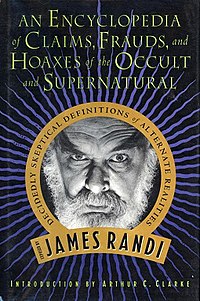
James Randi was a Canadian-American stage magician, author and scientific skeptic who extensively challenged paranormal and pseudoscientific claims. He was the co-founder of the Committee for Skeptical Inquiry (CSI), and founder of the James Randi Educational Foundation (JREF). Randi began his career as a magician under the stage name The Amazing Randi and later chose to devote most of his time to investigating paranormal, occult, and supernatural claims. Randi retired from practicing magic at age 60, and from his foundation at 87.

The Skeptic's Dictionary is a collection of cross-referenced skeptical essays by Robert Todd Carroll, published on his website skepdic.com and in a printed book. The skepdic.com site was launched in 1994 and the book was published in 2003 with nearly 400 entries. As of January 2011 the website has over 700 entries. A comprehensive single-volume guides to skeptical information on pseudoscientific, paranormal, and occult topics, the bibliography contains some seven hundred references for more detailed information. According to the back cover of the book, the on-line version receives approximately 500,000 hits per month.
James Randi Educational Foundation (JREF) is an American grant-making institution founded in 1996 by magician and skeptic James Randi. As a nonprofit organization, the mission of JREF includes educating the public and the media on the dangers of accepting unproven claims, and to support research into paranormal claims in controlled scientific experimental conditions. The organization announced its change to a grant-making foundation in September 2015.

The Silva Method is a self-help and meditation program developed by José Silva. It claims to increase an individual's abilities through relaxation, development of higher brain functions, and psychic abilities such as clairvoyance. It has been criticised as being pseudoscience.
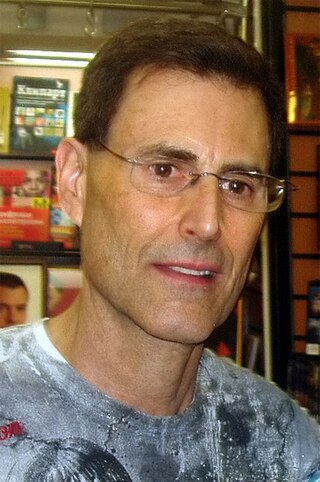
Uri Geller is an Israeli-British illusionist, magician, television personality, and self-proclaimed psychic. He is known for his trademark television performances of spoon bending and other illusions. Geller uses conjuring tricks to simulate the effects of psychokinesis and telepathy. Geller's career as an entertainer has spanned more than four decades, with television shows and appearances in many countries. Magicians have called Geller a fraud because of his claims of possessing psychic powers.
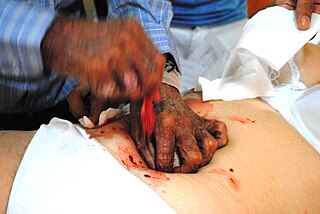
Psychic surgery is a pseudoscientific medical fraud in which practitioners create the illusion of performing surgery with their bare hands and use sleight of hand, fake blood, and animal parts to convince the patient that diseased lesions have been removed and that the incision has spontaneously healed.
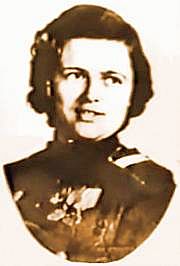
Nina Kulagina, Ninel Sergeyevna Kulagina was a Russian woman who claimed to have psychic powers, particularly in psychokinesis. Academic research of her phenomenon was conducted in the USSR for the last 20 years of her life.

A weeping statue is a statue which has been claimed to have shed tears or to be weeping by supernatural means. Statues weeping tears which appear to be blood, oil, and scented liquids have all been reported. Other claimed phenomena are sometimes associated with weeping statues such as miraculous healing, the formation of figures in the tear lines, and the scent of roses. These events are generally reported by Catholics, and initially attract pilgrims, but are in most cases disallowed by the Church as proven hoaxes.

Theodore Judd Serios was a Chicago bellhop known for his production of "thoughtographs" on Polaroid film. He claimed these were produced using psychic powers. Serios's psychic claims were bolstered by the endorsement of a Denver-based psychiatrist, Jule Eisenbud (1908–1999), who published a book named The World of Ted Serios: "Thoughtographic" Studies of an Extraordinary Mind (1967) arguing that Serios's purported psychic abilities were genuine. However, professional photographers and skeptics have argued that Serios and his photographs were fraudulent.

Thoughtography, also called projected thermography,psychic photography,nengraphy, and nensha(Japanese: 念写), is the claimed ability to "burn" images from one's mind onto surfaces such as photographic film by parapsychic means. While the term "thoughtography" has been in the English lexicon since 1913, the more recent term "projected thermography" is a neologism popularized in the 2002 American film The Ring, a remake of the 1998 Japanese horror film Ring.

Robert Henry Thouless was an English psychologist and parapsychologist. He is best known as the author of Straight and Crooked Thinking, which describes flaws in reasoning and argument.

Henry Slade (1835–1905) was a famous fraudulent medium who lived and practiced in both Europe and North America. Slade was best known for his "slate writing" method, where he would purportedly produce message written by spirits on slates.

Ectoplasm is a term used in spiritualism to denote a substance or spiritual energy "exteriorized" by physical mediums. It was coined in 1894 by psychical researcher Charles Richet. Although the term is widespread in popular culture, there is no scientific evidence that ectoplasm exists and many purported examples were exposed as hoaxes fashioned from cheesecloth, gauze or other natural substances.

Rudi Schneider, son of Josef Schneider and brother of Willi Schneider, was an Austrian Spiritualist and physical medium. His career was covered extensively by the Journal of the American Society for Psychical Research, and he took part in a number of notable experiments conducted by paranormal researchers/debunkers, including Harry Price, Albert von Schrenck-Notzing and Eric Dingwall. Some of these researchers declared him to be a fraud while others were unable to find evidence of trickery.

Flim-Flam! Psychics, ESP, Unicorns, and Other Delusions is a 1980 book by magician and skeptic James Randi about paranormal, occult, and pseudoscience claims. The foreword is by science fiction author Isaac Asimov. Randi explores topics which he says that scientists and the media are too willing to promote without skepticism and proper expertise.
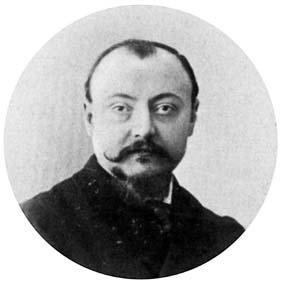
Gustav Geley was a French physician, psychical researcher and director of the Institute Metapsychique International from 1919 to 1924.
Doris Collins (1918-2003) was a British spiritualist and psychic medium.
Antonio C. Agpaoa (1939-1982) most well known as Tony Agpaoa was a Filipino practitioner of psychic surgery.
